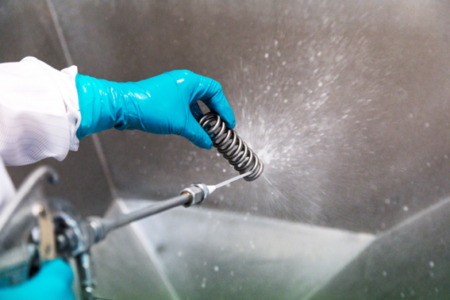Quality assurance of laser welds
The main goal for this project is to develop methods in order to ensure quality and optimize laser welded and ultrasonically welded komponents.
2021 – 2024


Project time: 2023 – 2024
Budget: 750 000 kr
Technical cleanliness to ensure sustainable and safe electric vehicles in all Sweden.
Technical cleanliness refers to the control of particles contaminants in various components and systems. In the context of of electric vehicles, technical cleanliness becomes crucial because these systems are built with sensitive electronic components, high-voltage systems, and advanced battery technology. Typical technical cleanliness requirements include the level of critical contaminants present on components or systems.
The assessment of contaminants has been issued in several standards but those do not discuss requirements for transparent and conducting particles that might be harmful for electric vehicles, especially batteries. Therefore, to establish appropriate requirements and identify cleanliness methodology and standards, a comprehensive study of cleanliness in electric vehicles manufacturing is needed. Among the main questions to answer, those related to particles extraction methods are central. Such methods should extract the highest amount of particles without damaging components. For example, fluid-based methods are the most used in technical cleanliness, but those not necessarily are suitable for electric components.
In this project, a comprehensive study about critical contaminants in batteries and electric vehicles, as well as the main techniques to extract and identify them will be proposed. It will ground a full project with potential to impact the whole electric vehicles industry, to ensure safer, more efficient, and more sustainable transports for all.